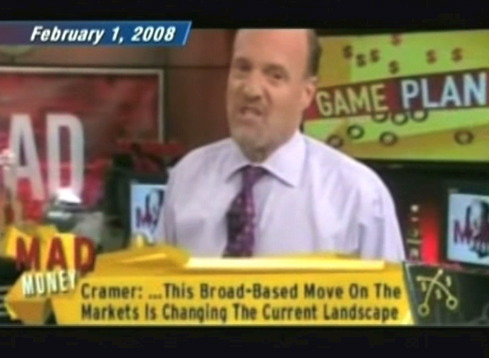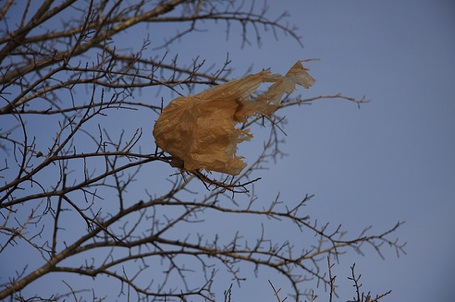Toxic Koch: Keeping Americans at Risk of a Poison Gas Disaster
By Will Vickery

By Will Vickery
By John Aloysius Farrell, Ben Wieder and Evan Bush
The Center for Media and Democracy is re-posting this article from John Aloysius Farrell, Ben Wieder, and Evan Bush at iWatch News, a project of the Center for Public Integrity, as part of our effort to track Koch Industries and ALEC via our ALECexposed.org project and to expose corporate spin. The original can be found here. For more, see Farrell's April 2011 article "Koch's web of influence" and Cole Goins' August 2011 article "What's it like living near a chemical plant?," both also on iWatch. To find out about chemical plants near you, download the spreadsheet of data gathered from the risk management plans that Koch files with the EPA.
 July 29 marked the one-year anniversary of Arizona's controversial immigration law, a year that has seen similar anti-immigrant bills emerge across the country. Thanks to the release of over 800 pieces of "model legislation" by the Center for Media and Democracy, we can now pinpoint the source of the outbreak to the American Legislative Exchange Council (ALEC), a bill factory for legislation that benefits the bottom line of its corporate members. While it has been reported that more immigrants behind bars means more income for ALEC member Corrections Corporation of America (CCA), less discussed has been how immigrant detention benefits commercial bail-bond agencies, an industry represented in ALEC through the American Bail Coalition.
July 29 marked the one-year anniversary of Arizona's controversial immigration law, a year that has seen similar anti-immigrant bills emerge across the country. Thanks to the release of over 800 pieces of "model legislation" by the Center for Media and Democracy, we can now pinpoint the source of the outbreak to the American Legislative Exchange Council (ALEC), a bill factory for legislation that benefits the bottom line of its corporate members. While it has been reported that more immigrants behind bars means more income for ALEC member Corrections Corporation of America (CCA), less discussed has been how immigrant detention benefits commercial bail-bond agencies, an industry represented in ALEC through the American Bail Coalition.
 Today, CNBC's Mad Money with Jim Cramer's "Invest in America" series will take the show to a seemingly unlikely locale. The crew will head to a place many would consider the middle of nowhere -- the state of North Dakota.
Today, CNBC's Mad Money with Jim Cramer's "Invest in America" series will take the show to a seemingly unlikely locale. The crew will head to a place many would consider the middle of nowhere -- the state of North Dakota.
Why North Dakota? Four words: The Bakken Shale Formation.
Referred to as "Kuwait on the Prairie" by The New Yorker in an April 2011 feature story and located predominately in northwest North Dakota, the shale formation possesses a vast amount of both oil and methane ("natural") gas, gathered via the notorious fracking process. Recognizing the economic opportunities that the formation would present to fossil fuel corporations, the U.S. Energy Information Administration penned a report in November 2006 titled "Technology-Based Oil and Natural Gas Plays: Shale Shock! Could There Be Billions in the Bakken?", highlighting them in some depth.
Submitted by Anne Landman on
 The American Chemistry Council (ACC), a lobbying group representing plastic bag manufacturers, successfully convinced the California Department of Education to rewrite its environmental textbooks and teachers' guides to include positive statements about plastic grocery bags. ACC wrote a letter to education department officials that said in part, "To counteract what is perceived as an exclusively negative positioning of plastic bag issues, we recommend adding a section here entitled 'Benefits of Plastic Shopping Bags.'" The state's final document was, in fact, edited to contain a new section titled "Advantages of Plastic Shopping Bags."
The American Chemistry Council (ACC), a lobbying group representing plastic bag manufacturers, successfully convinced the California Department of Education to rewrite its environmental textbooks and teachers' guides to include positive statements about plastic grocery bags. ACC wrote a letter to education department officials that said in part, "To counteract what is perceived as an exclusively negative positioning of plastic bag issues, we recommend adding a section here entitled 'Benefits of Plastic Shopping Bags.'" The state's final document was, in fact, edited to contain a new section titled "Advantages of Plastic Shopping Bags."
A couple of years ago, when Sen. Jay Rockefeller of West Virginia asked me to testify about little-known health insurance industry practices at a hearing of his Senate Commerce Committee, I initially was reluctant. I knew that if I was completely honest, my life would change forever.
What he was asking me to do was to disclose practices that have contributed to the growing number of Americans without insurance, the even faster growing number of us who are underinsured, and the phenomenal increase in insurance industry profits over the years, even as the ranks of those without coverage swelled.
The Center for Media and Democracy is reposting Beau Hodai's examination of the privatization schemes advanced by the American Legislative Exchange Council (ALEC), as part of CMD's effort to report on, and gather reporting about this organization through our ALECexposed.org work. This story was originally published by DBA Press (pdf) and is also available for download through this link. (pdf) You can also jump to the article's source materials directory here.
The Center for Media and Democracy is reposting Beau Hodai's investigation of so-called "scholarships" funded by corporations to bring state politicians to gatherings of the American Legislative Exchange Council (ALEC), as part of CMD's effort to report on and gather reporting about this organization through our ALECexposed.org work. This story was originally published by DBA Press. You can also download this report in PDF format and you can view documents relating to ALEC scholarship fund activity here.
(The Center for Media and Democracy is pleased to reprint this illuminating article about the American Legislative Exchange Council (ALEC) and reactionary immigration policies pushed into law in Arizona, as part of our ongoing reporting on ALEC and gathering of reporting about this organization in our work on ALECexposed.org. This story was originally published by DBA Press in June 2010)
"Beside my brothers and my sisters, I'll proudly take a stand. When liberty's in jeopardy, I'll always do what's right. I'm out here on the frontline, sleep in peace tonight. American soldier, I'm an American soldier..."
So goes the ringtone on Arizona State Senator Russell Pearce's phone -- as performed by Toby "'cause we put a boot up your ass, it's the American way" Keith. Seconds into any conversation with Pearce on the issue of illegal immigration, you'll find the song fits. Pearce is -- in his mind -- the "American soldier." What's more, just as he sees himself a soldier, Pearce envisions his home to be none less than the front in a war which threatens the very fiber of the nation.
 Saturday marks the commencement of the Tar Sands Action, which will take place in front of the White House.
Saturday marks the commencement of the Tar Sands Action, which will take place in front of the White House.
It is a two-week long civil disobedience campaign, planned to last through September 3, demanding that the Obama Administration turn down the proposal to build the Keystone XL Pipeline.
The 1,980-mile pipeline is slated to transport the dirtiest oil in the world from Alberta's tar sands down to southeast Texas. The pipeline's route overlaps with the Ogallala Aquifer, which supplies 82 percent of the people that live within the aquifer's boundary their drinking water. It would also snake through the Nebraska Sand Hills, which is a vital wetland ecosystem, containing a diverse array of plant and animal life.
Center for Media and Democracy (CMD)
520 University Ave, Ste 305 • Madison, WI 53703 • (608) 260-9713
CMD is a 501(c)(3) tax-exempt non-profit.
© 1993-2025